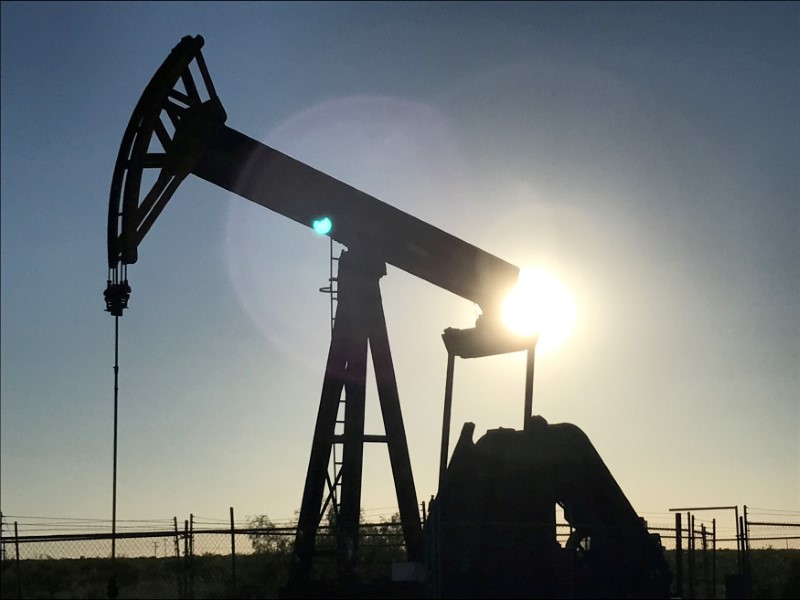By Ernest Scheyder
HOUSTON (Reuters) - With slumping crude oil prices stuck below where they started this year, U.S. shale oil producers have cut more than $1.2 billion from their 2017 spending budgets, even as they pledge to pump more oil.
That more-for-less approach highlights the shale industry's ability to ramp up production and keep improving the process of drilling and fracking a well to increase its clout in global oil markets.
U.S. shale oil producers expect to pump at least 160,000 more barrels per day this year than previously announced, according to a Reuters review of second-quarter regulatory filings.
In general, the industry has slowed rig expansion plans first put in place earlier this year. U.S. oil and gas companies added 10 drilling rigs in July, the fewest in any month since May 2016. Cuts in planned spending come as crude prices have lost more than 7 percent this year to $49.03. [O/R]
"We essentially can do more with less," said Lee Tillman, chief executive of Marathon Oil Corp (N:MRO), which on Wednesday shaved its 2017 spending plan by between $200 million and $300 million after posting a quarterly loss. Still, Marathon boosted its production forecast by about 7 percent for the year.
Marathon's stock gained 3.9 percent to $12.51 on Thursday after the announcement.
Wall Street has been pushing shale producers to cut spending in the face of stubbornly high global oil inventories that have depressed pricing and thrown off efforts by the Organization of the Petroleum Exporting Countries to balance supply and demand.
Shares of Noble Energy Inc (N:NBL), Pioneer Natural Resources Co (N:PXD), Concho Resources Inc (N:CXO) and Apache Corp (N:APA) - none of which cut their budgets - dropped on Thursday.
"I think OPEC had more success in stabilizing prices than people thought at the end of last year," said Keith Phillips, a senior economist at the Federal Reserve Bank of Dallas. "They have done pretty well in holding back production, but that means production in the U.S. can now be pretty significant in terms of how it affects oil prices."
Concho, one of the most-profitable Permian producers, said it would boost output by 25 percent this year over last year's levels, a strategy its executives defended.
"We're well-positioned for the volatility and we'll continue to build value in all points of the cycle," said CEO Tim Leach. Concho shares dropped nearly 9 percent on Thursday.
Pioneer dropped more than 7 percent on Thursday after disclosing higher costs and lower-than-expected oil production in some new wells in the Permian, the largest U.S. oilfield.
As oil wells age, they tend to produce more natural gas, but Pioneer said it has been finding a larger amount of gas than expected.
Pioneer executives sought to play down the unexpected development, with Tim Dove, the company's CEO, calling it a "settled issue" and promising to meet future oil production goals.
But Wall Street analysts peppered other companies on conference calls on Thursday with queries about rising gas production from Permian oil wells. It was an ironic twist, as shares of companies operating in the Permian have been Wall Street darlings for months.
Those worries helped drag down shares of other Permian producers. WPX Energy Inc (N:WPX) lost 8.7 percent; Parsley Energy (N:PE) slid 7.6 percent; and Noble Energy lost 7.7 percent.

"Investors are really thinking right now about capital discipline and they're thinking about your highest quality companies as the place to invest," Ken Fisher, Noble Energy's finance chief, said in an interview.